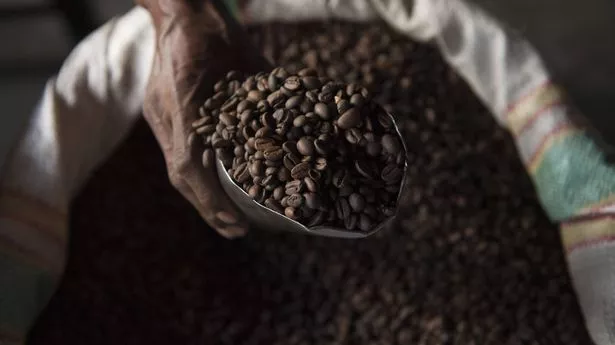Coffee lovers may need to brace themselves for further price jumps as the cost of beans hits a record high.
Arabica beans, the globe's favourite variety, have hit a 47-year peak this week, spiking over 18% this year to exceed $3.44 (£2.70) per pound, The Grocer reports. Similarly, robusta coffee isn't far behind, with its price leaping to a record-breaking $5,694 (£4,460) per metric ton in late November. .
The surge in coffee commodity prices can largely be attributed to weather concerns in key growing countries like Brazil and Vietnam. Late last month, Nestle confirmed it would continue raising prices and making packs smaller to offset the impact of higher bean prices.
Shoppers might have noticed that the supermarket shelf cost for a jar of Nescafe Original Instant Coffee has soared by 15% compared to last year, data from The Grocer's Key Value Items tracker indicates. .
In a statement, Nestle remarked: "Like every manufacturer, we have seen significant increases in the cost of coffee, making it much more expensive to manufacture our products.
"As always, we continue to be more efficient and absorb increasing costs where possible whilst maintaining the same high-quality and delicious taste that consumers know and love."
However, Will Corby, director of coffee and social impact at Pact Coffee, told The Grocer that coffee beans have been "sold for far too cheap from its countries of origin to the West for far too long.
"Huge coffee companies might say that these market highs are bad news, but, in reality, farmers are finally being paid enough to live on. It’s widely reported that this market high is mainly due to harvests in Brazil being short, but that’s not even half the story."
"We’ve seen near-perfect growing conditions in Brazil this year, and many technical reports suggest a surplus in the 2024/25 crop. There’s been a reduction in robusta production in Vietnam, driving its commodity price up significantly to near that of arabica," Mr Corby explained.
"Because of this, many coffee companies are choosing the better-quality arabica beans, driving up demand and price."
However, there are concerns about future supplies in Brazil after a lengthy dry spell earlier this year.
In Vietnam, the largest producer of the cheaper robusta bean, key coffee regions experienced dry spells during the growth time and were hit by heavy rains at the start of harvesting time. These record coffee prices stand out against broader wholesale food costs, still lagging behind early 2022 peaks following Russia's incursion into Ukraine.
